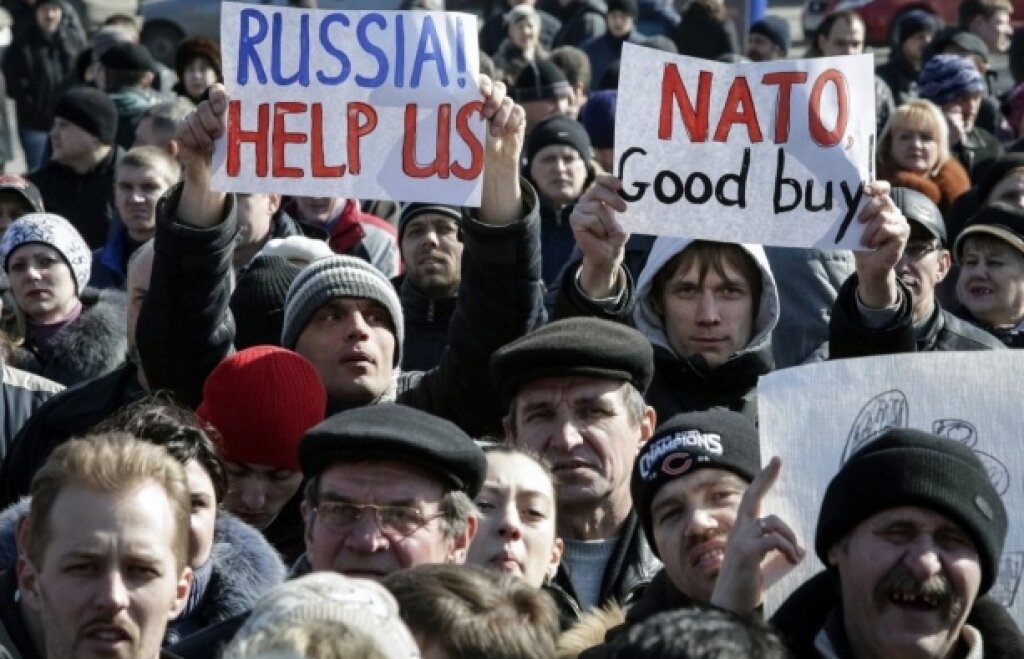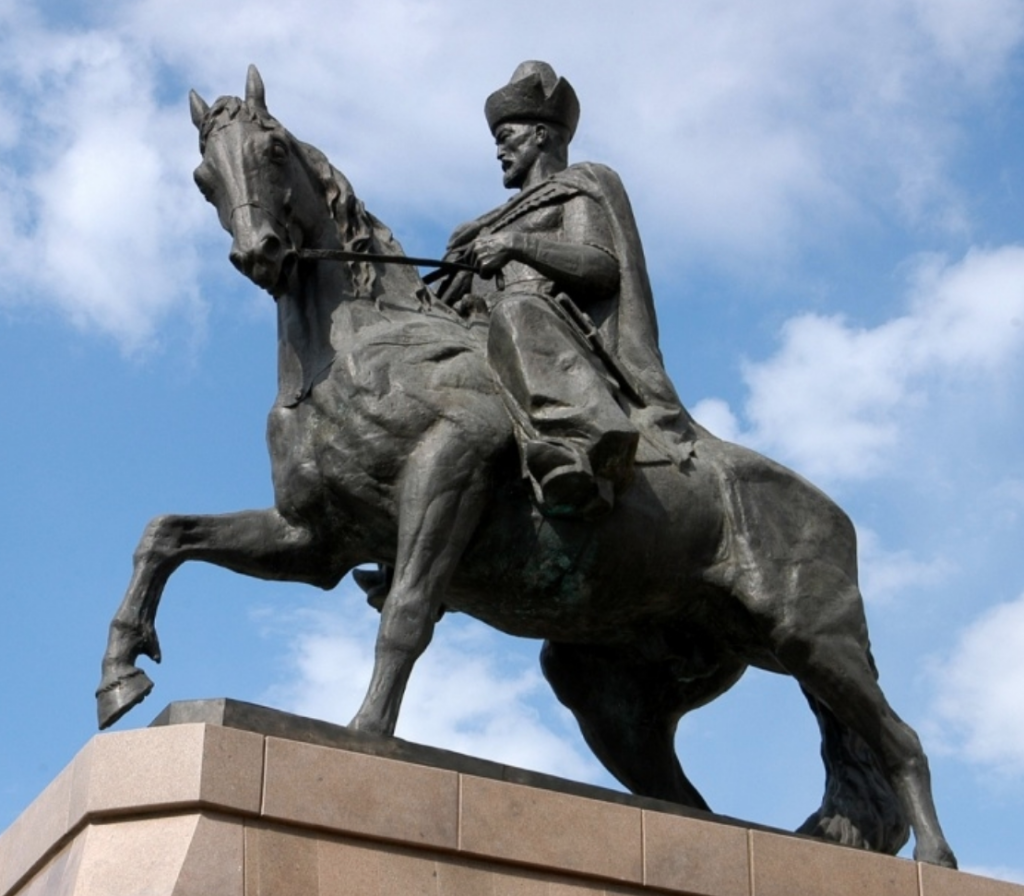Putinism and the Economy
We have plenty of reason to lament the apparent return of Russian politics to a place we have been. One political bloc, but one that claims to be patriotic and not partisan, a movement rather than a party. One leader, with an enormous and growing bureaucracy that looks to the pronouncements of the leader for the latest word on what may be said; never sure they have it right, they say very little and leave it to the fringes in the media and the legislature, and the speculations of a somewhat informed foreign press. More state ownership, as the public sector takes hold of more of the revenue making economy to use for one or another purpose. We seem to be at the mixed economy of the 1920s, when the state claimed the commanding heights and left small-scale production and trade to the private sector.
If there are big fortunes created since 1991, they are completely at the mercy of the state and we should marvel at the new primacy of the political; if there are new fortunes to be made, they are most likely going to be made quasi-legally in state service – quasi, that is, because no one is quite certain what is legal. This movement toward state control and ownership is hastened by the rigidity of the revenue and production systems, based as they are on a few sectors like oil and gas which accounts for fully 50 per cent of the state budget. One should expect more not less state ownership because the money is needed to feed the bureaucrats, and they have healthy appetites.
And the money is needed to support Putinism, which is a mix of outspoken state policies justified by the promise of higher incomes overall and better welfare provisions like pensions. These latter provisions were necessary and overdue, and the market reforms promised in 1991 were really property reforms that made for huge income inequalities. But the remedies, needed though they were, came at a price.
Putinism and Security Policy
Foreign policy is completely related to the economy. Internationally Russia has been finding itself less and less capable, less able to exert lasting influence. This is not new: there’s only so far one or two exports will get you, and a big army can gain territory but not hegemony; if the US army reflects and embodies economic power, the Russian army compensates for weakness. Think the Balkans in the late 1870s when Russia won far away glories but lost the peace at Berlin. Think the Warsaw Pact, a way to use the army to do the economy’s work. Or think Pristina, when the Russian army raced to beat NATO to the city, only to find that it had little to offer in terms of peace and reconstruction, and, most humiliating of all, it could not feed itself. Overextended supply lines? There were no supply lines.
One could speak emotively of Slavic and Orthodox brotherhood and solidarity, in 1878, in 1914, and even today, but it will only buy so much economic growth for any of the parties. Another country of mostly Orthodox Europeans, the Greeks, demonstrated with big and loud marches over the bombing of Serbia, but in NATO and the EU they toe the line. Serbia for whom Russians and Greeks demonstrated are asking to join the EU, and it’s only a matter of time.
Resistance Is Futile
There really is no alternative to Euro-German hegemony when it comes to consumption, little outside the Pax Americana when it comes to the global system of finance and security. And yet we often dream that the alternative may be out there, maybe even in Russia, and writers on the right of American politics hope against hope that Russia might be the leader of a revitalized Christian Eurasia, with limits on abortions and secularisms and gays to reestablish values that we never really had.
On the left we are rightly suspicious of American power because it has been exercised poorly, clumsily, and at times with huge violence, and we may ponder any challenge to American supremacy in hopes that one or another phenomenon abroad represents a check on our unchecked power. If we do not like what we see in Russia itself, at least it is counterhegemonic, at least it is authentic, at least it is not a McFuture. Serbia claimed to be the last free country in the 1990s because it was defying the Americans; Russians tell me much the same thing today.
Not that western power is good or even intelligent, and in today’s mess there is not much innocence to go around. The western powers meddled in Ukrainian politics, as did Russia. That’s what countries do with each other and it’s naïve or disingenuous to be surprised. A government in Kiev was overthrown illegally, a Ukrainian peninsula was seized illegally. As the dust settles and the self-righteousness recedes, we can peer at the secular trend.
Russia lost the geopolitical game and especially the contest for economic hegemony, because there is only so much gas to sell or withhold. Brussels still looks better than Moscow, by far, and as the oil revenues decline, even Athens, Lisbon, and Madrid will look good to a Kievan. In the miasma of unclear legalities, hypocrisy, and rage on all sides, we lose track of the realities on the ground: the power of the West, like it or not, is irresistible.
The Russian army went into Crimea because the alternatives had failed. Moscow threatens eastern Ukraine because it can't buy it. The kind of power practiced by the Euro-Americans is a new kind of empire: why invade when you can coopt, implicate, and invite the world to share in a certain kind of economy that does hold out attractions and disciplines into submission. Spanish, Portuguese, and Greek living standards went up since membership in the EU, but they also discovered that there’s a lot of liberty and sovereignty to be lost and choices to be precluded. There was ultimately no arguing with Berlin, Brussels, and the IMF. Imagine the credit rating agency stamping on your face, forever. It may be better than the real boot and the tank, I readily admit, but we don't have to love it and I hope that we can still challenge it.
To complicate matters, the US has been downright reckless. Victoria Nuland's and the US ambassador's presence at the Maidan last December was an immature and provocative display on the part of so-called diplomats, a national embarrassment of childishness. The EU treaty of last fall forced an issue that need not have been forced, reminding us that Europeans are no longer very good at being an empire and Germany never was. There is no doubt that Ukraine will end up in the EU orbit, but why add insult and public displays of triumphalism? Russians react more strongly to the public affront than to the quieter realities. Yeltsin was downright quiescent and Putin himself quiet as NATO and the EU expanded quietly. Russians are quite right that they were being boxed in, by roll-back rather than containment, but why rub salt in the wound, and why provoke a rupture?
Russia at Home
So here’s the problem: with the Russian economy slowing and soon to contract, oil revenues which bought loyalty (and lest we forget, real social improvement for millions) drying up, and the state subsuming more of the economy, Putin’s only formula is to change the subject and anticipate an economic decline with ever new political and cultural crises, often manufactured; and then blame the sanctions for the downturn. Pussy Riot; gay propaganda; abortion limits; more religion and traditional values; domesticized and child-bearing women; hysteria over Islamic terrorism; Crimea; and now eastern Ukraine.
Much of it is straight from the playbook of an American campaign strategist who knows that the economic argument cannot be won so starts a cultural one. Pat Buchanan was in awe of Putin’s playbook; an American ultraconservative thought the anti-gay law in Russia was his greatest achievement. There is no sign that the government will attempt to reverse or moderate the huge concentrations of capital and the very big income disparities; and there will be less money to raise the floor for the poor; instead bureaucrats are joining in the process and sounding the alarm over demographic crises and a seeping western decadence.
When the economic war seems unwinnable internationally, or when no one wants to wage a war on economic problems at home, culture wars look good and cheap. There need be no great budget allocation for sounding the alarm over poor population growth, dark-skinned people, declining morals, and women who labor at an office rather than the maternity ward. But there are victims. It’s the home front I worry about most because there are no domestic checks on state power. I fear for any minority that may not have known it was A Minority, but is about to find out.



